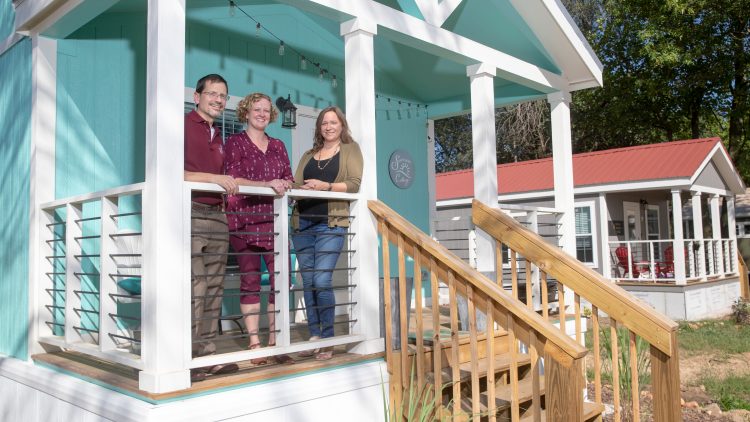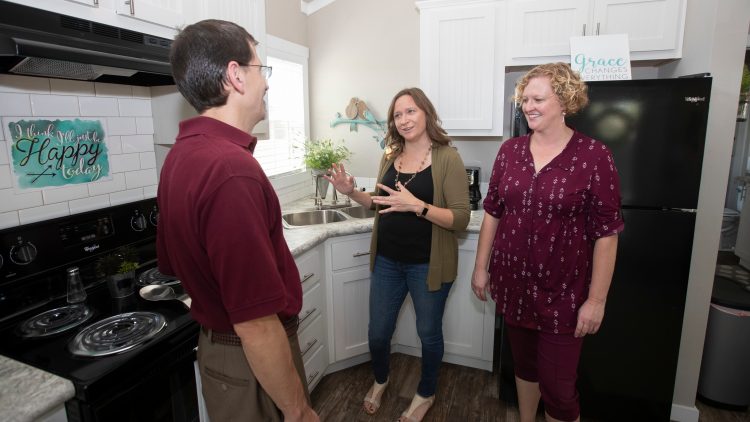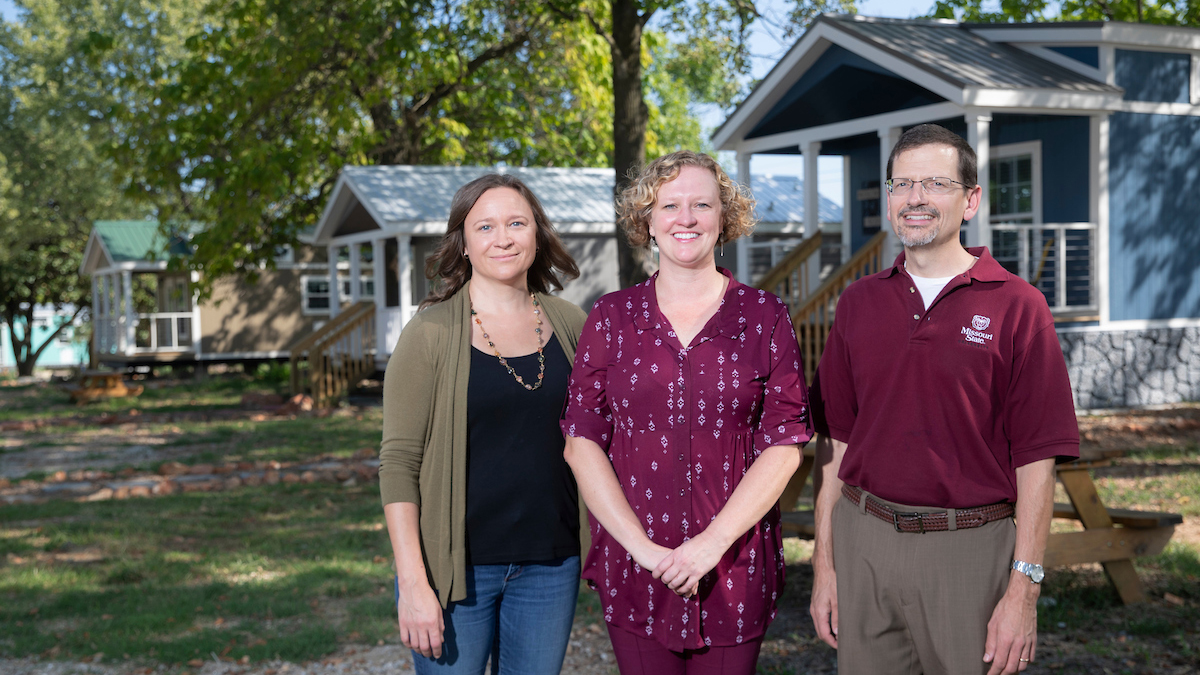Tiny homes are becoming more and more popular for several reasons.
They’re less expensive. They take up less space, which usually leads to fewer possessions. They allow for minimalist living. They often have wheels, so you can travel or easily move.
“The tiny house movement is growing,” said Dr. Krista Evans, assistant professor of planning and geography at Missouri State University. “I think it is exciting and has great potential. It could offer an affordable housing solution to recent college grads, the newly divorced, those who have lost a spouse or those wanting to downsize and live more affordably after retirement.”

Eden Village
Evans works with Eden Village, a tiny house community for people who are chronically homeless in Springfield.
She is part of a collaborative team at Missouri State that is looking at the community in several ways. It also includes:
- Dr. Marnie Watson, assistant professor of sociology and anthropology
- Dr. David Rohall, department head of sociology and anthropology
Watson and Rohall want to understand how this community will affect formerly homeless residents in the long run.

Evans looks at the land use challenges associated with tiny home communities. One example is how people would react to a tiny home village for the homeless in their own neighborhoods.
Other tiny homes
Evans started studying tiny homes when she realized many were parked illegally in urban areas. Because of zoning laws, homes on wheels or small foundations have strict land use laws.
“It was shocking to see how many people bought or built a tiny house on wheels without knowing it was actually illegal to park it in their yards or driveways,” Evans said.
Evans looks at land use barriers in Asheville, North Carolina, and Horry County, South Carolina.
Both communities are looking for ways to integrate tiny homes into communities. These communities are only looking at foundation based tiny homes.
“Tiny house land use law has to be well thought out so that we don’t wind up with a bunch of tiny houses crowded together in ways that are unattractive or potentially unsafe,” Evans said.

